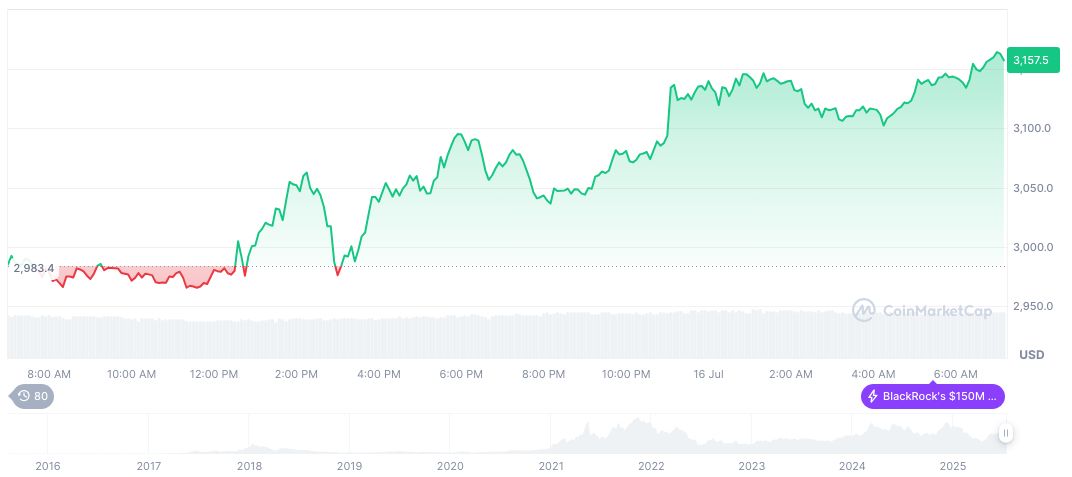- Narrow House vote advances key crypto bills with anti-CBDC provisions.
- Republican leaders rally support amidst internal opposition.
- Market awaits impact on stablecoin regulation and CBDC restrictions.
The U.S. House of Representatives’ procedural vote moved forward bills related to cryptocurrency on July 17th, following extensive efforts by Republican leaders. Key figures, such as Steve Scalise and Mike Johnson, played pivotal roles in rallying support amidst internal opposition. Following the vote, Republican leaders pledged to include anti-CBDC provisions in the National Defense Authorization Act. The GENIUS Act, aimed at modernizing financial regulation, could face a vote as early as tomorrow. Donald Trump urged support, influencing the outcome. The vote underscores the volatile political landscape influencing cryptocurrency regulation in the U.S.
Steve Scalise, House Majority Leader, stated, “posted new procedural voting times for the GENIUS Act, CLARITY Act, and Anti-CBDC Act, confirming the expected legislative action Wednesday afternoon.” Source
U.S. House Advances Crypto Legislation Amidst Political Tensions
The U.S. House of Representatives’ procedural vote moved forward bills related to cryptocurrency on July 17th, following extensive efforts by Republican leaders. Key figures, such as Steve Scalise and Mike Johnson, played pivotal roles in rallying support amidst internal opposition. Following the vote, Republican leaders pledged to include anti-CBDC provisions in the National Defense Authorization Act. The GENIUS Act, aimed at modernizing financial regulation, could face a vote as early as tomorrow. Donald Trump urged support, influencing the outcome. The vote underscores the volatile political landscape influencing cryptocurrency regulation in the U.S.
In the wake of these developments, immediate implications for stablecoin regulation and CBDC deployment emerged. The GENIUS Act proposes strict reserve requirements for stablecoin issuers, while the CLARITY Act aims to restrict CBDC development. This legislation could significantly reshape the U.S. digital currency landscape, particularly impacting stablecoins like USDC and USDT.
Market players and analysts are monitoring these legislative movements closely. Former President Trump publicly supported the vote, asserting that Congress should back the GENIUS Act. His involvement marked a notable intervention in the debate over cryptocurrency regulation. Industry key opinion leaders (KOLs), while attentive, have yet to make formal statements. The community remains watchful for outcomes that could affect stablecoin regulation and the broader digital asset market.
Historical Context, Price Data, and Expert Insights
Did you know? U.S. legislative actions often create uncertainty in crypto markets, with past resistance to CBDC development viewed favorably by decentralized asset investors.
Ethereum’s current price stands at $3,323.73, according to CoinMarketCap. The cryptocurrency’s market cap is $401.22 billion, with a 10.66% market dominance. Ethereum’s 24-hour trading volume is $48.77 billion, reflecting a 29.08% decrease. Over the past 90 days, Ethereum’s price increased by 110.08%.
Coincu’s research team highlights potential regulatory outcomes through these pivotal legislative engagements, emphasizing the critical nature of adopting stringent stablecoin standards. These measures could establish a new baseline for other regions considering similar approaches to digital currency regulation. Compelled by global financial trends, such moves are poised to shape the landscape of decentralized finance.
| DISCLAIMER: The information on this website is provided as general market commentary and does not constitute investment advice. We encourage you to do your own research before investing. |
Source: https://coincu.com/349109-house-passes-crypto-bills-procedural-rules/
